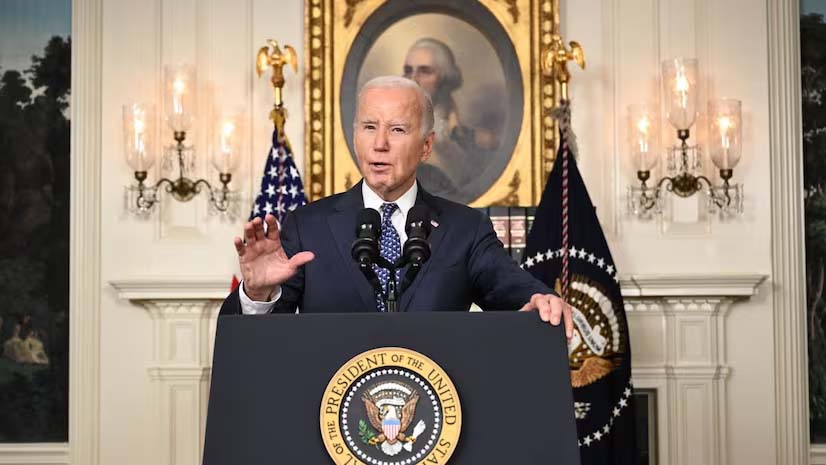In Washington, a recent special counsel report unveiled evidence suggesting that, during his time as a private citizen, President Joe Biden deliberately retained and shared highly classified information pertaining to military and foreign policy in Afghanistan. Surprisingly, no criminal charges were deemed appropriate in the report.
Authored by special counsel Robert Hur, the report marks the conclusion of a year-long criminal investigation casting a shadow over Biden’s presidency. Despite the absence of criminal charges, the report’s scathing assessment of Biden’s management of sensitive government records and unflattering depictions of his memory raise fresh concerns about his competence and age, impacting voters’ reservations about his candidacy for re-election.
Furthermore, these critical findings are likely to hamper Biden’s ability to vehemently criticize Donald Trump, his expected opponent in the upcoming presidential election. Trump, facing a criminal indictment for allegedly hoarding classified records at Mar-a-Lago, seized the opportunity presented by the special counsel report to position himself as a victim of a perceived two-tiered system of justice.
While Hur did find evidence suggesting Biden’s intentional retention and sharing of highly classified information with a ghostwriter, the report primarily elucidates why criminal charges were not warranted. Factors such as the advanced age of Biden, leading to potential forgetfulness, and the existence of plausible innocent explanations for the records, played a significant role in this decision.
In response to the report, Biden vehemently denied sharing classified information and rebuked the special counsel for questioning his recollection of his late son Beau’s death. Biden, indignant, asserted that it was not within Hur’s purview to inquire about such personal matters. Addressing concerns about his memory, Biden insisted that his recollection is intact and maintained his belief that he remains the most qualified candidate for the presidency.
Biden’s legal team criticized the report, citing inaccuracies and unwarranted criticisms. In a statement, Biden expressed satisfaction with the conclusion that no charges would be brought, emphasizing his cooperation during in-person interviews amid an international crisis.
It’s important to note that this investigation into Biden is distinct from special counsel Jack Smith’s inquiry into Trump’s handling of classified documents after leaving the White House. Smith’s team charged Trump with illegally retaining top-secret records at Mar-a-Lago and obstructing government efforts to recover them. Trump, however, maintains his innocence.
Hur, a former U.S. Attorney in the Trump administration, assumed the role of special counsel in January 2023. His appointment followed the discovery of classified records in Biden’s Washington office space, leading to subsequent property searches revealing sensitive documents from Biden’s time as vice president and senator.
While the report acknowledges that some documents were retained by mistake, it asserts that Biden could not be prosecuted as a sitting president. Notably, Hur would not recommend charges against Biden irrespective of the Department of Justice policy. The investigation did find evidence of willful retention and disclosure of certain records in Biden’s Delaware house, related to a troop surge in Afghanistan during the Obama administration, a position Biden had opposed vehemently.
Documents found in Biden’s Delaware garage included classification markings up to the Top Secret/Sensitive Compartmented Information Level. Despite this, Hur noted a shortage of evidence to definitively prove that Biden intentionally placed the documents in the box and was aware of their presence.
Part of the classified information concerning Afghanistan was shared with a ghostwriter, with whom Biden collaborated on memoirs in 2007 and 2017. The probe included a review of a recorded conversation from February 2017, where Biden admitted to discovering classified material downstairs.









